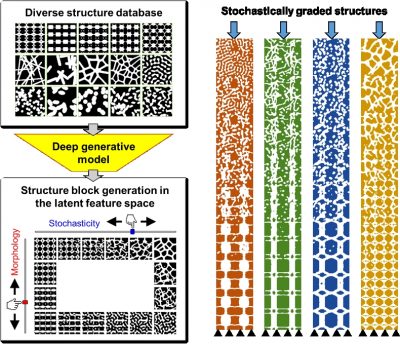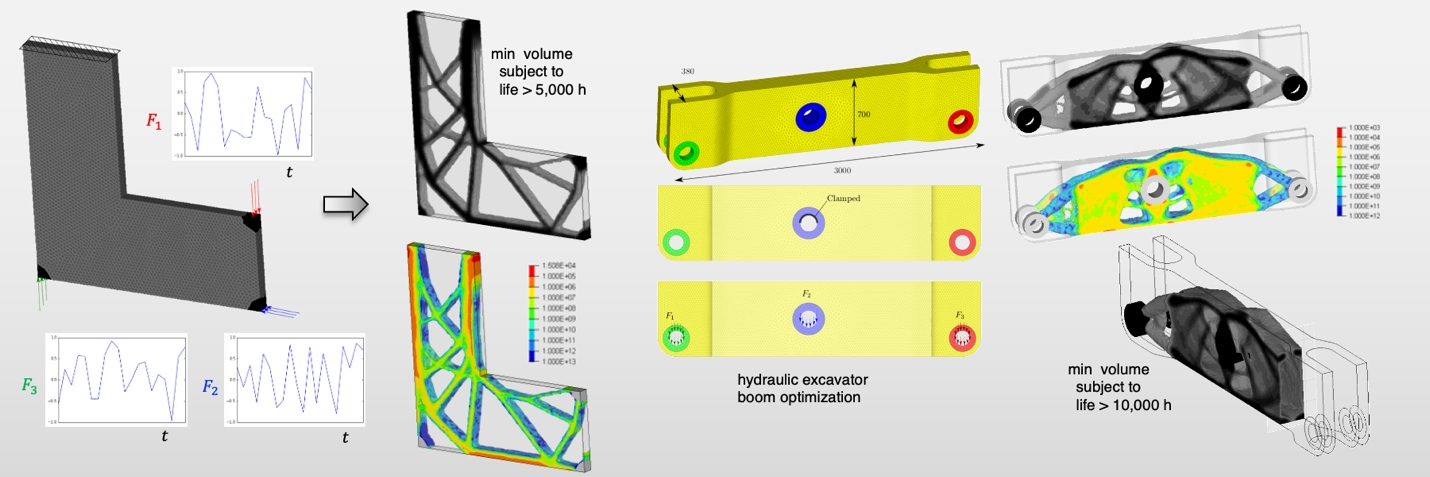This effort facilitates systems of systems integration and decision making by developing novel modeling and digital validation capabilities for structural systems, digital twins and virtual prototyping, energy systems and storage, system sensing, diagnostics and prognostics, and uncertainty quantification.
Simultaneous packaging and routing optimization of complex systems in a multiphysics environment.
We are working on new approaches to perform simultaneous packaging and routing optimization of complex systems in a multiphysics environment by leveraging novel geometric representations, computational architectures, and machine learning models.
Computational Design of Stochastically Graded Structures for Stress Wave Manipulation

The goal of this project is to establish a computational framework for tailoring the structural stochasticity of microstructural materials to achieve desired properties. Based on this method, we propose a new structure design concept, “stochastically graded structures”, to enable effective manipulation of stress wave propagation by varying the local structural stochasticity while maintaining the material compositions and densities. The outcome of the proposed research will (i) lead to a quantitative understanding of the effect of structural stochasticity on the stress wave propagation behaviors, and (ii) accelerate the development of new structural materials for impact/blast protection.
Topology Optimization with regards to Stress and Fatigue Constraints

Our group has also made strides in incorporating into topology optimization local failure criteria, such as stress and fatigue-life constraints. These constraints are common and critical design requirements for high-performance engineering applications, including vehicle structures. We have formulated techniques to efficiently impose maximum stress and minimum high-cycle fatigue-life constraints for large-scale problems. Our group formulated the first density-based topology optimization technique to incorporate fatigue-life constraints in the presence of non-proportional loading, which is common in many practical applications.
A Compact and Efficient Gearless Mechanical Transmission
This project aims to formulate the theoretical kinematic models from first kinematic principles that will enable the design of customized GMT systems and develop an expert software system that will enable the customization of these roller-based GMT systems.